AI Use Cases in Automotive Industry
Driving Forward: The Future of Automotive with AI
Ai
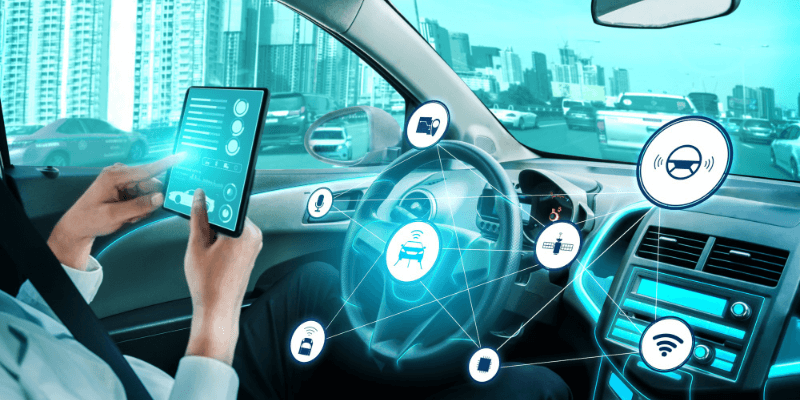
Autonomous driving powered by AI redefines transportation by replacing human drivers with AI-driven systems. These systems utilize data from sensors like cameras and LiDAR to perceive and respond to the environment, offering improved safety and accessibility. The primary focus lies in enhancing road safety by minimizing human errors, which account for most accidents. Moreover, autonomous driving enhances mobility for individuals with disabilities and contributes to efficient transportation, reducing congestion and environmental impact. By optimizing routes and traffic flow, autonomous vehicles promise to reshape urban landscapes and transportation infrastructure. Ultimately, autonomous driving represents a huge shift in the automotive industry, ushering in a future where vehicles operate seamlessly and safely in a connected, autonomous ecosystem driven by AI.
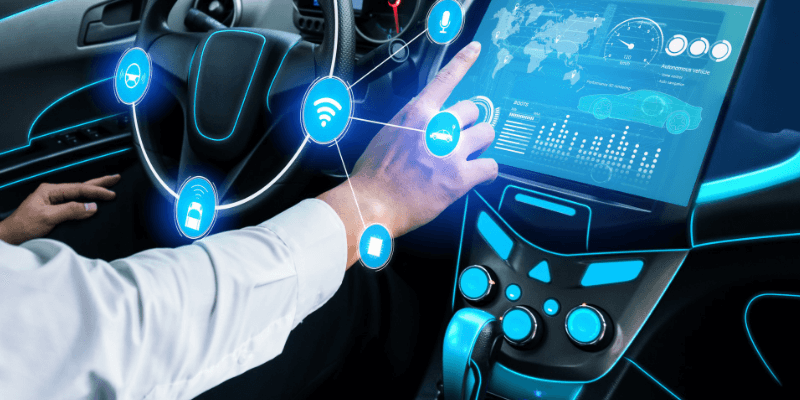
Futurism pioneers in driver monitoring within the automotive industry, employing AI to continually evaluate driver behavior and condition for heightened safety. This innovative approach utilizes an array of advanced sensors, including cameras and infrared sensors, to analyze real-time cues such as facial expressions and driving patterns. The primary objective is accident prevention, particularly addressing distractions and driver fatigue. AI systems promptly detect signs of drowsiness or inattention, issuing timely alerts to prompt driver intervention or breaks. Furthermore, these systems offer personalized driving experiences by adjusting vehicle settings based on individual preferences and physical state. Crucially, driver monitoring advances semi-autonomous and autonomous driving technologies, ensuring smooth transitions between manual and automated modes. This groundbreaking application not only enhances driver well-being but also contributes significantly to overall road safety.
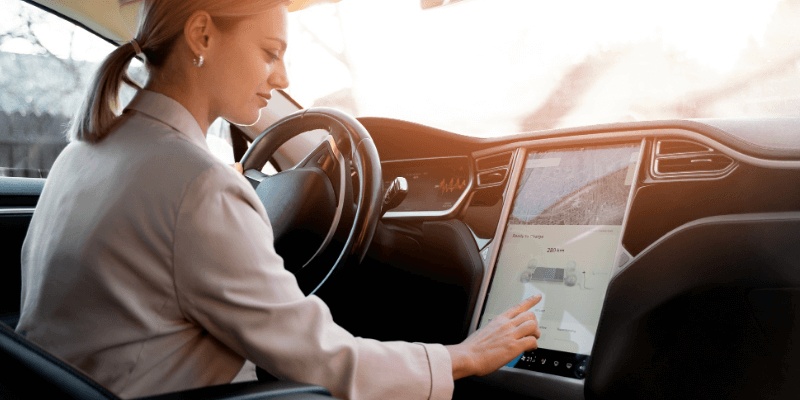
Personal assistant employs Natural Language Processing (NLP) and machine learning algorithms to understand and anticipate drivers’ needs, enhancing convenience, safety, and comfort on the road. AI-powered personal assistants integrate seamlessly with the vehicle’s infotainment system, allowing drivers to perform various tasks hands-free, such as making calls, sending messages, adjusting navigation routes, and controlling entertainment options. Through continuous interaction and learning from user preferences and driving patterns, the assistant provides personalized recommendations and alerts, optimizing the driving environment for each individual. Whether it’s adjusting climate settings, suggesting nearby amenities, or reminding of upcoming maintenance tasks, AI-powered personal assistants ensure a tailored and intuitive driving experience, setting new standards for automotive technology and customer satisfaction.
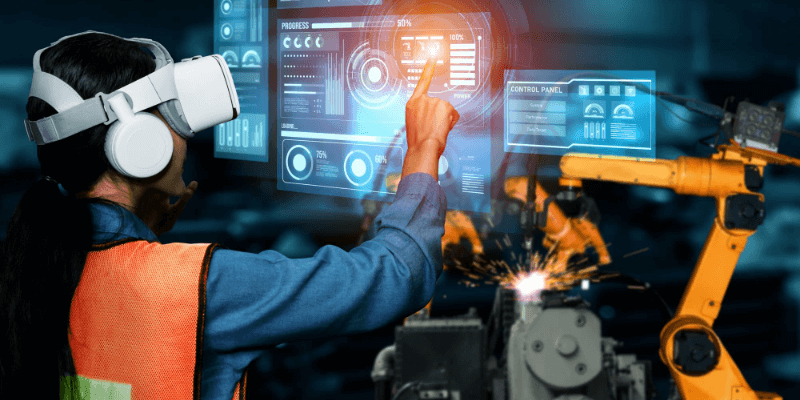
AI-driven predictive maintenance optimizes automotive industry operations by harnessing AI algorithms. Sensors embedded within vehicles continuously gather data on performance metrics. AI analyzes this data, identifying patterns indicative of potential failures or maintenance requirements. By predicting issues before they escalate, proactive maintenance schedules are established, minimizing downtime and preventing costly breakdowns. This approach revolutionizes traditional reactive maintenance practices, ensuring that vehicles remain operational, reducing the likelihood of unexpected failures. With AI-powered predictive maintenance solutions, automotive companies can optimize their maintenance strategies, enhance vehicle reliability, and ultimately improve customer satisfaction.
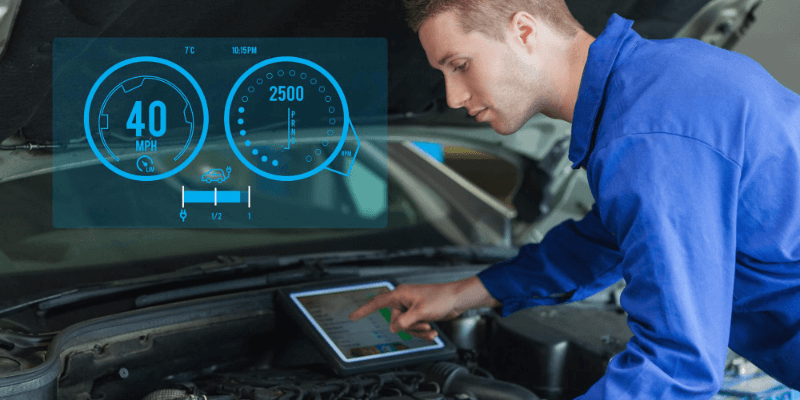
In the automotive industry, AI algorithms revolutionize vehicle diagnostics and troubleshooting. By analyzing onboard diagnostic data in real-time, advanced AI systems swiftly pinpoint potential issues within vehicle systems. Through intelligent pattern recognition and data analysis, technicians receive actionable diagnostic recommendations promptly, expediting the troubleshooting process. This innovative approach not only enhances the efficiency of vehicle servicing but also minimizes downtime for customers. By harnessing the power of AI, it ensures that automotive technicians can accurately diagnose and resolve problems swiftly, maintaining the optimal performance and reliability of vehicles. This proactive approach to diagnostics sets new standards in automotive maintenance, enabling businesses to deliver superior service and customer satisfaction in an increasingly competitive industry landscape.
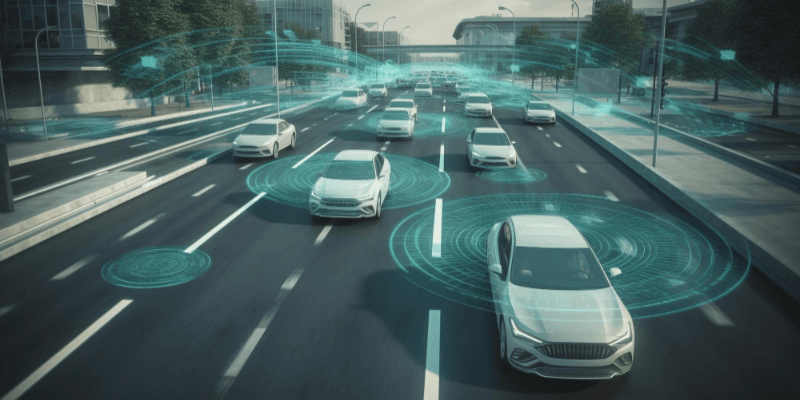
Leveraging advanced AI and IoT capabilities, the connected car solutions redefine vehicle connectivity, enhancing safety, efficiency, and user experience. Through real-time data exchange between vehicles, infrastructure, and the cloud, the platform enables predictive maintenance, optimizing vehicle performance and minimizing downtime. This innovative approach to connected cars empowers drivers with personalized services, including navigation, infotainment, and remote vehicle management, all accessible through intuitive interfaces. Furthermore, the solution facilitates vehicle-to-vehicle (V2V) and vehicle-to-infrastructure (V2I) communication, enabling intelligent traffic management and congestion reduction. With AIoT-powered connected car solutions, automakers unlock new opportunities for innovation, differentiation, and customer engagement, driving the industry towards a smarter, safer, and more sustainable future.
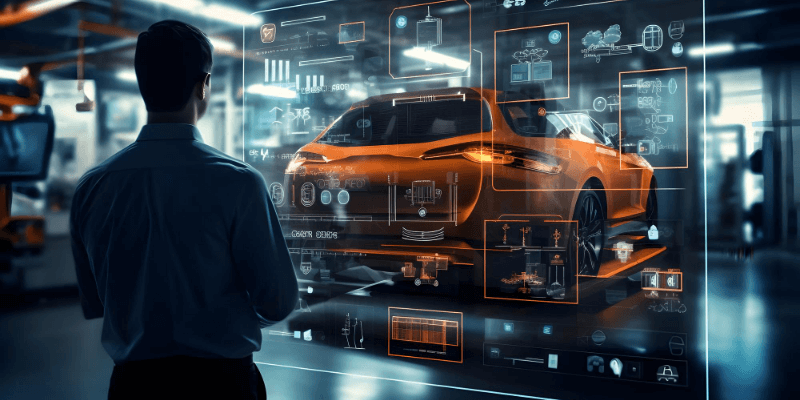
With each vehicle comprising approximately more than 20,000 distinct parts sourced globally, the complexity of monitoring transportation journeys and tracking arrivals poses significant challenges. By harnessing AI, we can enable manufacturers to create fully automated systems that optimize supply chain operations. Advanced algorithms predict demand spikes, allowing for adjustments in volumes and routes to ensure timely delivery of components. This transformative approach not only addresses the complexities of importing vehicle parts but also enhances efficiency throughout the car-making process. AI solutions empower automotive manufacturers to navigate the intricacies of their supply chains seamlessly, resulting in cost savings, improved logistics, and unparalleled reliability.
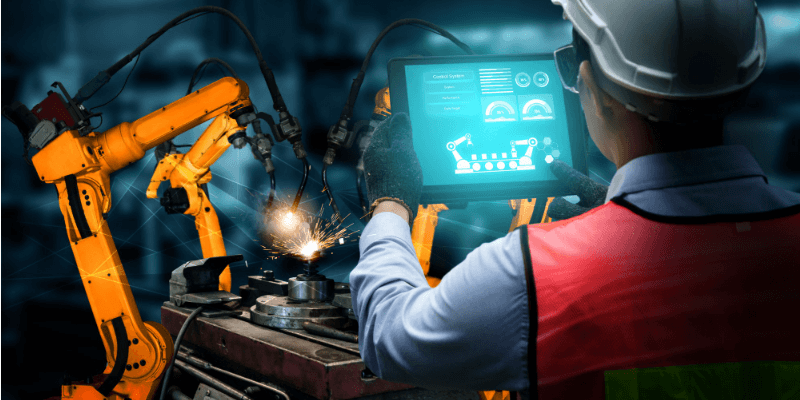
AI-driven robotics and automation can seamlessly integrate into automotive plants, optimizing production lines, quality control, and logistics. By using advanced algorithms, it can analyze real-time data to enhance efficiency and reduce production costs. AI algorithms predict maintenance needs, minimizing downtime and ensuring uninterrupted operations. Quality control processes are enhanced through AI-powered inspection systems, ensuring that only products meeting the highest standards reach consumers. Additionally, AI optimizes logistics, streamlining supply chain management and reducing delays. With advanced AI solutions, automotive manufacturers experience increased productivity, improved product quality, and significant cost savings, positioning them at the forefront of innovation in the automotive industry.
Make your business more successful with latest tips and updates for technologies